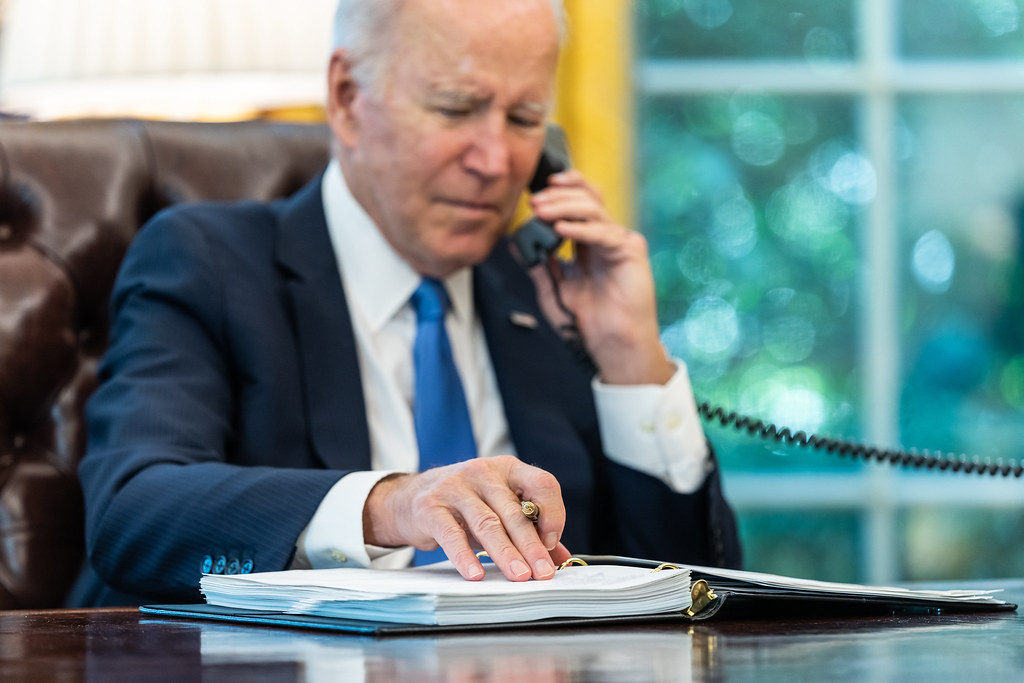Success- Russia doesn’t invade Ukraine- looks like failure to the media.

To the great regret of someone certainly- based on the 150,000+ Russian troops stationed at or staged near the Ukraine border- but to the greater relief of everyone else on Earth, Russian forces have not invaded Ukraine in spite of dire warnings from the Biden Administration.
By almost any metric, in almost any other time and place, this might be considered a success. By the new ad-click metric that dominates our news networks, it isn’t.
Consider the situation: A major world power- one which has been making military forays into a neighboring but sovereign nation since long before forcibly “annexing” part of that country in 2014- begins moving a suspiciously large number of troops into what looks for all the world like a pre-invasion formation.
Another world leader warns the international community in no uncertain terms of the signs pointing to an imminent attack, drawing the world’s attention to satellite photos of troops, heavy artillery equipment, and fighter jets which anyone can see for themselves.
The country amassing troops- constructing field hospitals, prepping emergency blood supplies, and setting up pontoon bridges- denies any ill intent, claiming it all- in spite of appearances- to be a totally routine military exercise on our own sovereign soil, thank you very much, which will continue as planned no matter how much unnecessary panic it is causing the bordering country and the world.
Other world leaders- and their attendant intelligence gathering agencies- join the chorus condemning the actions of the aggressor country in what certainly seems to be a brewing conflict.
Actions speak louder than words. All signs point to a plan to invade: Worst case, this is a precursor to imminent war; best case, it is a feint toward future invasion and war. Either way, the signs aren’t good.
After an intense pressure campaign from multiple nations, the aggressor nation in the conflict again denies the presence of any troops preparing for battle, but promises to draw them down anyway and quit scaring everyone before doing neither.
And here we are.
In spite of the very suspicious actions of Russia, many in the U.S. press are perpetuating the narrative that Vladimir Putin did all this with the intention of “owning” the Biden Administration: “We made you think we going to invade and then we didn’t-ha!”
Media outlets have been perpetuating the twin narrative that the Biden Administration, suffering the pangs of low polling, inflation and other setbacks, seized on and overreacted to the overtures of the Russian military on the border of Ukraine as a distraction.
At times, perhaps in an effort to keep panic in the country to a minimum, Ukrainian authorities have fed into this narrative of a Biden Admin overreaction- reminding world leaders in pained tones that Russian military aggression has been going strong for nearly a decade to the tune of 14,000 Ukrainian lives lost in the conflict.
While this is true, it certainly doesn’t rule out the possibility that more aggressive military measures might currently be under consideration.
Even if Russian authorities had no intention of invading Ukraine at this time, making world powers believe they might was a military maneuver all on its own. Russian President Vladimir Putin is former KGB, regardless of how much he would like the world to forget it.
No matter what happens now, Putin has already won in a way. He weakened the Ukraine, badly hurting its economy in the short-term and sending international investors running for the hills in the long-term.
In conducting its “war games” to look exactly like a staging of a military invasion of Ukraine- if indeed that is what we’ve been seeing- Russia was able to provoke western powers, including the U.S. into a response and observe that response.
Because President Biden did something else during this conflict for which an otherwise war-weary U.S. press is giving him no credit: He sent a clear message to the Ukraine.
No U.S. military help is coming.
Ukraine is a U.S. ally; yes. In the Ukraine’s ongoing and longstanding land disputes with Russia, however, the U.S. is not willing to arbitrate using its military. Economic sanctions, something at which Russian authorities have repeatedly thumbed their noses since 2014, are something the Biden Administration is willing to consider along with other ways to provide material support.
Putting U.S. soldiers in harm’s way, no.
Nothing says, “we won’t stand by you,” like ordering all Americans to evacuate and pledging limited support for anyone who ignores the warning.
Part of what went wrong in Afghanistan was that on the ground in the country leading up to the troop draw-down date, few people believed U.S. troops were really going to leave. No matter how many measures the U.S. took to assure Afghanistan’s government and citizens of its intentions to leave, even closing Bagram Airfield, no one believed.
“Believe it,” is the unequivocal message the Biden Administration is sending any in the Ukraine still imagining U.S. troops fighting Russian ones on the border. “Read my lips: No new wars.”
In no uncertain terms, the Biden Administration is encouraging the Ukrainian government to deal diplomatically with its ongoing struggles with Russia. Negotiate, compromise, compensate; whatever it takes.
Meanwhile, the press is reporting gleefully that Russia hasn’t invaded and therefore President Biden must have been wrong about the threat. Some of them at least need to take a closer look at the conflict.
Russia failing- thus far- to invade the Ukraine doesn’t represent a failure for the Biden Administration. On the contrary- it represents a great victory.
If postponing, averting or otherwise avoiding war, even for a single day, is a foreign policy failure, we need more of it.
(contributing writer, Brooke Bell)